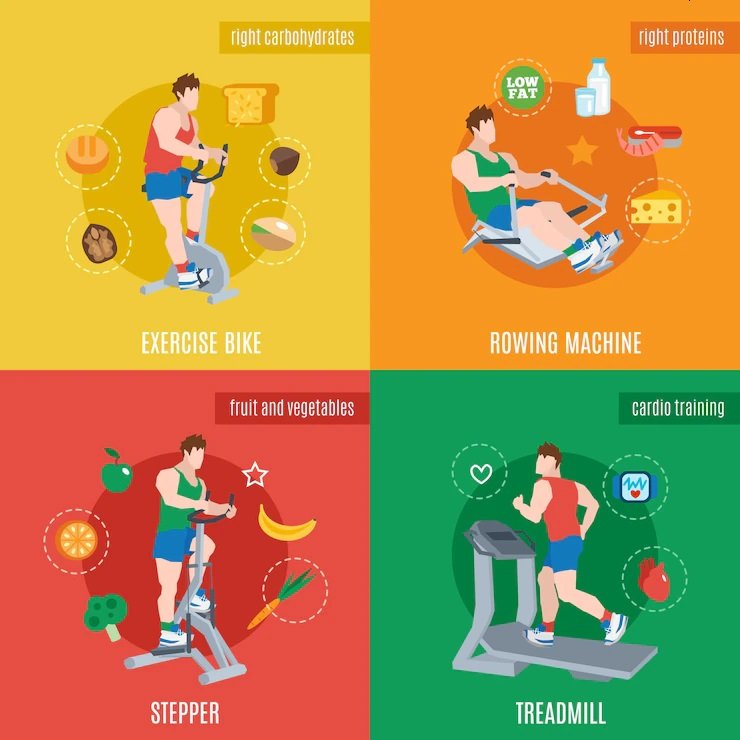“Strength training offers numerous benefits beyond just altering your body composition, but it is a crucial activity for those looking to lose weight. Research has shown that lifting weights can lead to a loss of up to 1.4% of body fat. However, there is no set guidelines on how to effectively achieve weight loss through strength training or how long it will take to see results.”
“To see a change in your weight, it is important to consider various factors such as your diet, the intensity and duration of your workouts, and the frequency of your exercise sessions,” according to Albert Matheny, a registered dietitian, and certified strength and conditioning specialist. Matheny, who is also a co-founder of SoHo Strength Lab and the CEO of Promix Nutrition, estimates that by maintaining your current diet, you can expect to see a change in your weight within two weeks.
It can be challenging to accurately measure weight loss that is achieved through lifting weights because muscle tissue weighs more than fat tissue. As a result, it is possible that you may not see a change in your overall weight, even if you are losing body fat. To accurately track your progress, Albert Matheny recommends paying attention to how your clothes fit rather than focusing solely on the scale. Additionally, using a scale that measures body fat percentage can provide a more accurate picture of your progress, as you can track the decrease in that number rather than just your overall weight.

Here’s what you can do
1. You’ve paid no attention to your nutrition.
It is important to pay attention to your nutrition if you are trying to lose weight. What you eat can have a significant impact on your weight and overall health. By paying attention to your nutrition and making healthy food choices, you can improve your chances of achieving your weight loss goals.
2. You do not eat enough protein.
Protein is an essential nutrient that plays several important roles in the body. It is necessary for the growth, repair, and maintenance of tissues, as well as for the production of enzymes, hormones, and other substances. Adequate intake of protein is especially important for individuals who are trying to lose weight, as protein can help you feel full and satisfied, which may help you eat fewer calories and reduce your risk of overeating. If you are not eating enough protein, it may be more difficult to lose weight and maintain your weight loss.
3. You’re snacking too much so.
Eating frequent snacks can contribute to weight gain if you are not careful. Snacking can help you meet your nutrient needs and provide energy between meals, but it is important to choose healthy snacks that are low in calories and high in nutrients. If you find that you are snacking too much or choosing unhealthy snacks, it may be helpful to plan your meals and snacks and to keep a variety of healthy options on hand. This can help you make healthier choices and control your portion sizes, which can support weight loss.
4. You do not work at a high enough intensity
Exercise can be an effective tool for weight loss, but the intensity of your workouts can affect the results you achieve. Higher-intensity exercise can help you burn more calories and increase your metabolism, which can support weight loss. If you are not working out at a high enough intensity, it may be more difficult to lose weight and see the results you want. To increase the intensity of your workouts, you can try incorporating interval training, using heavier weights, or increasing the duration of your workouts. It is important to listen to your body and make sure you are exercising at a level that is safe and appropriate for your fitness level.
5. Your carbs intake is off.
Carbohydrates are an important source of energy for the body, but the type and amount of carbs you eat can affect your weight. Consuming too many high-calorie, sugary carbs can contribute to weight gain, while eating more fiber-rich, complex carbs can support weight loss. If your carb intake is off balance, it may be helpful to assess your overall diet and consider making adjustments to the types and amounts of carbs you are consuming. It can also be helpful to work with a registered dietitian or other qualified healthcare professional to create a meal plan that meets your individual needs and supports your weight loss goals.
6. You do not get balanced meals.
Eating balanced meals can be important for weight loss and overall health. A balanced meal typically includes a source of protein, complex carbs, and healthy fats, as well as a variety of vitamins, minerals, and other nutrients. By eating a variety of foods and making sure each meal is balanced, you can help ensure that you are getting all the nutrients you need to support your health and weight loss goals. If you are not getting balanced meals, it may be helpful to reassess your diet and make sure you are including a variety of nutrient-rich foods in your meals and snacks.
7. You’re drinking too much Alcohol.
Drinking too much alcohol can contribute to weight gain and make it more difficult to lose weight. Alcohol is high in calories and can interfere with the body’s ability to burn fat, so consuming too much can lead to an increase in body weight. In addition, alcohol can lower inhibitions and lead to overeating or making poor food choices. If you are trying to lose weight, it is important to be mindful of your alcohol intake and try to limit the amount you drink. It may also be helpful to choose lower-calorie options and to drink alcohol in moderation.
8. You’re not allowing yourself enough recovery time.
Recovery time is important for the body to repair and rebuild muscles after exercise. If you are not allowing yourself enough recovery time, you may be at risk of overtraining, which can lead to muscle fatigue, injury, and other negative health effects. Allowing your body sufficient time to recover can help you avoid these issues and support your weight loss goals. It is generally recommended to allow at least one day of rest between workouts and to get enough sleep at night to allow your body to fully recover.
